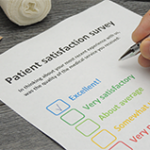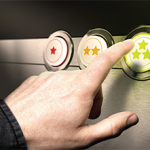Karen S. Kolba, MD, a rheumatologist at the Pacific Arthritis Center, Santa Maria, Calif., says her biggest challenge is having too much to do—including seeing patients, supervising employees, setting policy, managing a small business, staying current with rheumatology science and taking an active role in ACR leadership. “You need an office manager and nursing staff who can implement your ideas,” she says. With her busy schedule, it is sometimes difficult to attend educational and management seminars, but online offerings have made that easier. At one point, she employed a physician associate for nine months, but given their different goals, she decided it was easier to remain the lone practitioner.
Dr. Perkins foresees her next big challenge as maintaining her practice’s branded excellence in a new system that will coordinate with larger groups (e.g., accountable care organizations and patient homes) while demonstrating its excellence as a high-quality, low-cost practice.
Reaping Rewards
For Dr. DiGiovanni, the greatest reward of having his own practice is the satisfaction of designing his concept of a medical care delivery system for his patients. “A private practice rheumatologist becomes a true advocate for his patients and a problem solver for referring physicians,” he says. A private practice rheumatologist can still teach medical students, residents and even fellows. The opportunity for pharmaceutical studies is also available.
Dr. Greer has forged close relationships with partners and views them as extended family. “We can all practice rheumatology as we desire to individually,” he says. By being at the same practice for more almost 20 years, he has gotten to know his patients well and forged good relationships with them.
Dr. Kolba loves being queen. “I get to decide my office’s decor, how patients are greeted on the phone and in person, how forms, paperwork and collections are handled, and how much time I spend with patients,” she says. “I take vacations and leave the office early when I want to.”
Dr. Kolba also finds joy in bringing her two dogs to the office. “They greet patients in the lobby, follow the ones they like into exam rooms, hop onto laps when invited and seem to know who needs a gentle nudge or hug when they are sad or hurting,” she says. “My staff and I take turns walking them outside, which is a great break. I’m pretty sure the dogs earn their kibble daily by standing between me and burnout.”
Karen Appold is a medical writer in Pennsylvania.
Reference
- Accenture. Many U.S. doctors will leave private practice for hospital employment, Accenture reports. Press release. 2015 Jul 29.
Editor’s note: For another perspective, see “Rheumatologists Weigh Pros, Cons of Working in Academia.”



